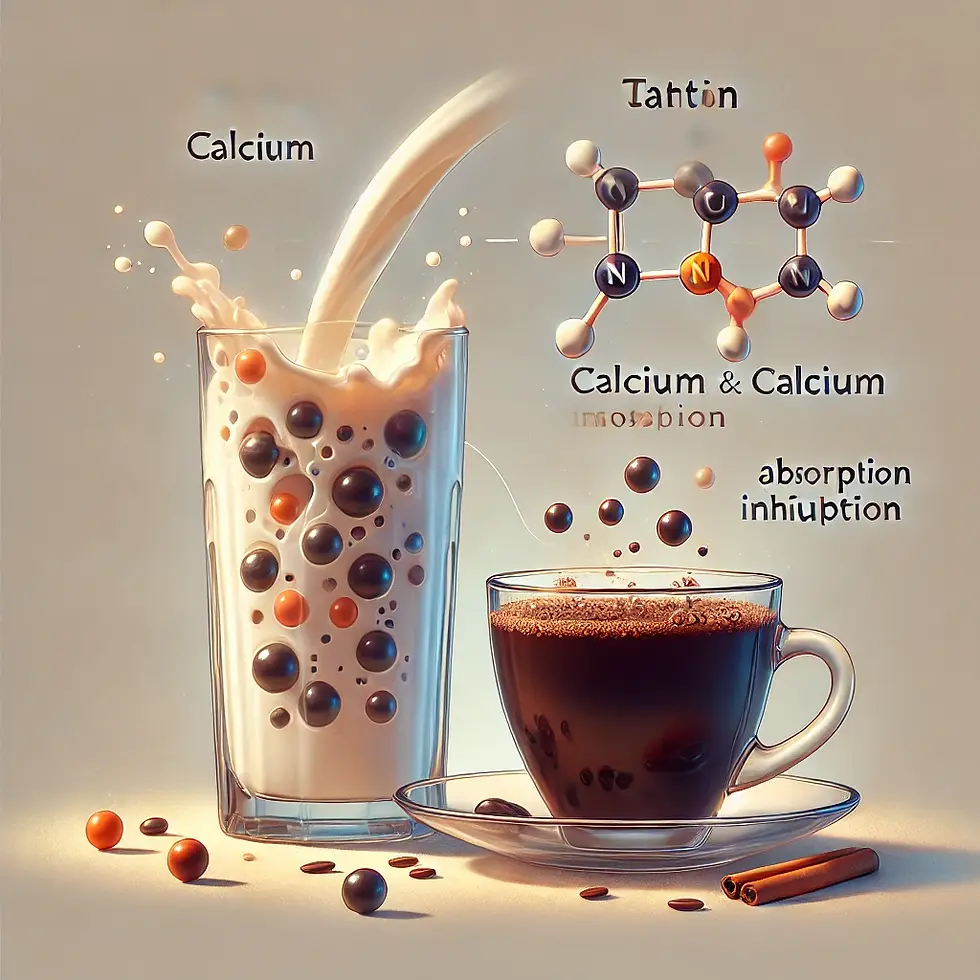Food Pairings: Which Combinations to Avoid and Which to Favor?
- BIOTECH-EVOLVING
- Aug 28, 2024
- 3 min read
Nutrition is not just about what we eat, but also how we combine foods together.

Some food combinations can improve digestion , increase nutrient absorption, and promote better overall health , while others can lead to digestive discomfort, fatigue, or even poor nutrient absorption.
In this article, we will explore which food combinations to avoid and which ones to favor to optimize your well-being.
Why Are Food Pairings Important?

Each food has a unique composition, requiring different enzymes and conditions to be digested. For example, proteins, carbohydrates and fats are not digested in the same way or at the same rate.
When we combine foods that require very different digestive processes, it can lead to fermentation in the stomach, excess gas production, bloating, and inefficient digestion.
Food Combinations to Avoid
Proteins and Carbohydrates

Combining proteins (such as meat, fish, or eggs) with starchy carbohydrates (such as potatoes, rice, or bread) is a common, but potentially problematic, practice. Proteins require an acidic environment to be digested, while starches require an alkaline environment.
When eaten together, these two types of foods can counteract each other, slowing digestion and potentially leading to digestive discomfort.
Fruits and Complete Meals
Fruits are digested quickly, while other foods can take several hours to fully digest. When fruits are eaten at the end of a meal, they can get stuck behind other foods in the digestive system, which can lead to fermentation, bloating, and discomfort. It is best to eat fruits alone or before a meal.
Milk and Tea or Coffee

Milk contains calcium, while tea and coffee contain compounds called tannins that can inhibit calcium absorption. Drinking tea or coffee with milk can reduce the amount of calcium available to the body, which can be problematic for those with increased calcium needs.
Different Proteins (Meat and Dairy)
Mixing animal proteins from different sources (e.g., meat with dairy) can be difficult for some individuals to digest. These types of proteins require different enzymes and can slow digestion, leading to digestive fatigue.
Food Pairings to Favor
Vegetables and Proteins

Vegetables, especially high-fiber ones like leafy greens, pair well with protein . The fiber in vegetables helps slow down the digestion of protein , promoting more complete absorption and smoother digestion.
Fruits and Nuts

Fruits like apples or bananas pair well with nuts or seeds. This combination provides a good balance between the fast carbohydrates in the fruit and the proteins and fats in the nuts, stabilizing blood sugar and providing long-lasting energy .
Whole Grains and Legumes

Whole grains (such as brown rice or quinoa) combined with legumes (such as lentils or chickpeas) form a complete source of protein . This combination is also rich in fiber , vitamins and minerals , supporting good digestion and providing essential nutrients.
Healthy Oils and Raw Vegetables
Healthy oils, such as extra virgin olive oil, pair perfectly with raw vegetables. The fats present in oils help in the absorption of fat-soluble vitamins (A, D, E, K) present in vegetables, optimizing their availability to the body.
Practical Tips for Better Digestion
Eat slowly and mindfully: This allows satiety signals to trigger properly and helps with better digestion.
Avoid drinking too much water during meals: This can dilute gastric juices and slow digestion.
Respect your body's signals: Everyone is different, and what works for one person may not work for another. Listen to your body and adjust your eating habits accordingly.






Comments